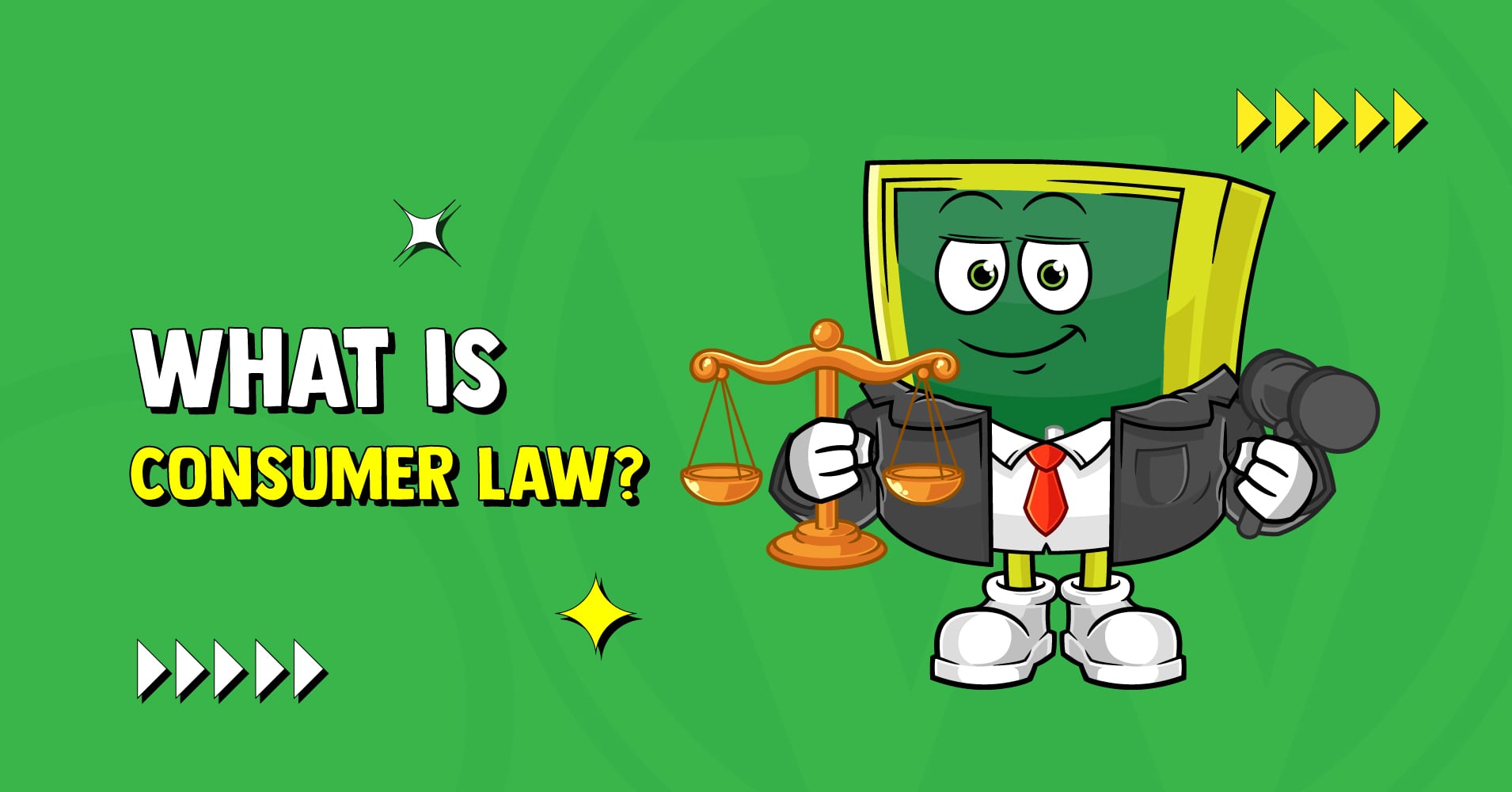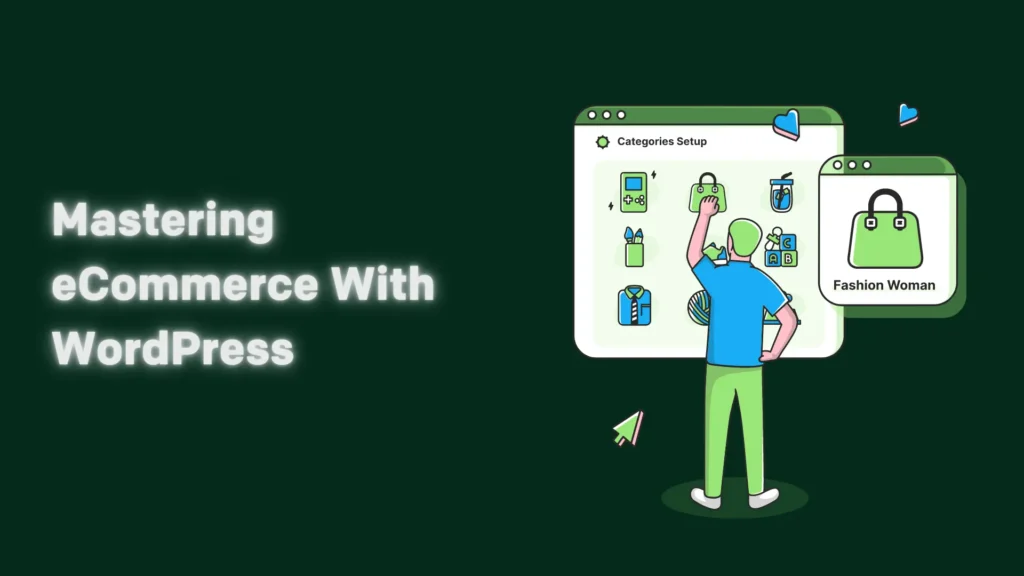
Do you know that there are several laws to protect you when you make a purchase? If so, you should know that the term “consumer law’’ works for your safety from the beginning to the end of the purchasing process. Whether you are buying a product online or offline, consumer law is there for your safety.
So, as a concerned buyer, you must know about consumer law to ensure your rights. Are you getting curious? Want to clarify the concept? In this article, we will educate you about this critical term. Let’s dive into it.
What is consumer law?
The term ‘consumer law’ refers to laws and regulations protecting customers against fraud and mis-selling when they purchase a product or service. When a consumer interacts with a business, he may feel unsure about the whole purchasing process, especially for online products. Here, the term works as a safeguard for customers.
Moreover, this term obliges businesses to treat consumers fairly and uphold their rights and protection. So, businesses must ensure the satisfactory quality of their products. If businesses fail to meet their requirements, a customer’s right is to claim compensation, replacement, or refund.
In some cases, businesses do not agree with the right. Here, the law comes in and helps the customer. Fixing the issues between consumers and businesses, it maintains a healthy environment in the market.
Because of this support, a consumer continues his ride in the market spontaneously. Suppose you want to buy a laptop from an online platform. In the whole purchasing process, you have one thing in mind: if any unfair occurrence happens, you could solve the issue with the help of the law.
Consequently, you continue your shopping spontaneously. So, consumer law controls unfair terms in the market and helps a user shop without any doubt.
Advantages of consumer law
After knowing the definition, maybe you are thinking that consumer law benefits only consumers. If so, we can have a talk to clear up your confusion. It benefits both consumers and businesses.
Firstly, let’s discuss how a consumer can take advantage. As businesses are obliged to produce safe products, the term ensures consumers to buy safe products.
According to the law, consumers have a right to return products or get compensation. Moreover, a consumer should give thanks to consumer law for protecting them from fraud and misselling.
Now for the businesses: Consumer law obliges them to produce quality-standard products. So a consumer is more willing to buy the products. This advantage helps businesses grow sales.
Moreover, owing to the law, consumers feel more confident when making an expensive and complex purchase. So this benefits a business.
What consumer law covers?
Consumer law protects people when they do business with businesses. It covers a wide range of activities. Though the laws may vary from country to country, one thing is common among them: all the laws try to cover fair treatment for consumers.
The common areas are to make sure that transactions are fair and clear, consumers are safe, money-back guarantees exist, and so on.
Here are some of the main things that consumer law covers:
- Product safety: It protects people from getting hurt or sick resulting from unsafe or defective products.
- Consumer contracts: Consumer contracts are agreements between consumers and businesses to buy or sell things or services.
- Advertising and marketing practices: Advertising and marketing practices make sure that advertising interactions are fair, transparent, and honest.
- Unfair or deceptive practices: Unfair or deceptive practices make sure that transactions are fair and clear, and protect customers from fraud or deception.
- Consumer credit and financial services: Consumer credit and financial services refer to the different financial goods and services that banks, credit card companies, lenders, and other financial service providers offer to their customers.
- Privacy and data protection: Privacy and data protection refer are the laws and rules set up to protect individuals’ personal information and make sure that organizations handle data in a responsible way.
- Dispute resolution and remedies: These terms are the mechanisms to resolve disagreements between consumers and businesses, as well as remedies for consumer rights violations.
What is a consumer law group?
Consumer law group refers to a specific law firm or legal organization that focuses on managing legal issues. This term refers to a team of attorneys and legal professionals. Its main goal is to represent and advocate for consumers in different legal matters related to consumer rights and protection.
The groups try to make sure that people get fair treatment. Also, they make sure that businesses and service providers respect the rights of consumers.
Let’s get acquainted with some of the most prominent consumer law groups or organizations. One common thing is that all of them are established in the USA and are non-profit organizations.
Public Citizen
A well-known consumer advocate named Ralph Nader established Public Citizen in 1971. The organization works to protect consumers’ rights. Speaking up for the public’s interest and doing advocacy for policies is the main goal of this organization. Consequently, their works benefit consumers, workers, and the general public.
National Consumer Law Center (NCLC)
National Consumer Law Center (NCLC) was established in 1969. It works as a consumer rights protector. The organization also works to educate people regarding the law. Moreover, it becomes a main resource for consumer lawyers, advocates, and policymakers.
Consumer Federation of America (CFA)
Consumer Federation of America (CFA) fights for customer rights and protections. It started in 1968. CFA works to promote and protect the interests of customers by advocating for them, doing research, educating people, and building unions.
National Association of Consumer Advocates (NACA)
National Association of Consumer Advocates (NACA) was founded in 1997. NACA serves as a professional association and resource hub for attorneys.
Center for Responsible Lending (CRL)
Center for Responsible Lending (CRL) was established in 2002. This non-profit organization is dedicated to promoting fairness, transparency, and responsible practices in the lending industry.
Consumer law rights (basic four rights)
Consumer law rights are legal safeguards that businesses and service providers have to provide to consumers. These rights are designed to safeguard consumers from deceptive practices, fraud, unsafe products, and other unfair business practices. So, this term makes sure of fair treatment for consumers.
These rights may vary from country to country. But as a consumer or businessperson, you should know the four basic rights declared by US President John F. Kennedy in 1962.
1. The right to safety
Businesses should ensure the safety of their products or services. Consumers have the right to buy and use safe and non-threatening goods and services. It promotes responsible business practices, product quality, and transparency, ultimately building consumer trust and confidence in the marketplace.
2. The right to be informed
A consumer has the right to know the details and pros and cons of the product. This includes clear information about prices, terms and conditions, warranties, possible risks, and anything else that could affect their choice.
3. The right to choose
Consumers have the freedom to freely choose from a wide range of products or services available on the market. This right aims to ensure fair competition, give consumers more freedom, and stop monopolistic or anti-competitive practices.
4. The right to be heard
The right to be heard promotes open communication, transparency, and accountability between customers and businesses. It recognizes that consumers are active participants in the marketplace, with significant insights that can help improve products, services, and company practices.
Find, store and access customer feedbacks
all in one system.
Best consumer law books
Consumer law books empower consumers with knowledge so that they can know about their rights. Moreover, consumer law experts shared their detailed analysis in the book.
So, you will get access to knowing this topic deeply and can solve any kind of unfair issue. We will suggest the three best consumer law books to boost your knowledge regarding this topic.
1. Consumer Protection Law in a Nutshell
Dee Pridgen is the author of this concise and comprehensive consumer law manual. It covers a wide range of topics related to consumer protection. Particularly, this manual provides information about consumer protection in the United States.
Therefore, citizens of the USA, like law students, attorneys, and interested people seeking to understand their rights, can clear up their concepts by reading the book.
2. Consumer Law in the Global Economy: National and International Dimensions
Three great consumer law experts named Geraint Howells, Christian Twigg-Flesner, and Martin Ebers are the authors of this book. It talks about a lot of different ways to protect customers, such as industrializing countries and promoting social justice.
One of the main points of the book is a comparison and analysis of consumer protection laws in different jurisdictions.
3. Consumer Rights Law
The author, John G. Dutton, tells you everything you need to know about consumer rights law. It talks about unfair contracts, liability for products, buyer fraud, and what customers can do to stop it.
This book is a complete guide for law students, lawyers, lawmakers, customer advocates, and individuals who want to learn about consumer rights. Moreover, they will also learn how to deal with customer rights in the legal world.
Consumer law experts
Let’s get acquainted with the top five experts who have made major impacts in this field.
1. Elizabeth Ann Warren

“People shouldn’t be tricked into signing complex contracts that they can’t understand. It’s time for clear and simple terms that consumers can actually read and comprehend.”
Elizabeth Ann Warren is a former senator and law professor in the United States. She has made a big impact in the field of consumer law and protection. She established the U.S. Consumer Financial Protection Bureau (CFPB) with her expertise in research and legislation.
2. Deepak Gupta

“Customer can destroy your business”
Deepak Gupta is a famed consumer rights attorney. He is the co-founder of the law firm “Gupta Wessler”. He played a big part in advancing consumer rights. Besides, he advocates for fairness in the legal system.
3. Ira Rheingold

“In a world where corporations have significant power, it’s crucial to have strong consumer protection laws and enforcement mechanisms to ensure fairness and accountability.”
Ira Rheingold is the Executive Director of the National Association of Consumer Advocates (NACA). He promoted customer rights. He also helped to work toward a fairer and more equal marketplace
4. Richard Cordray

“Consumer protection is not simply about shielding people from harm; it is about empowering them with the information, the tools, and the voice to make informed decisions that are right for themselves and their families.”
American politician and attorney Richard Cordray was the U.S. Consumer Financial Protection Bureau’s first director. He has extensive experience in consumer protection and has been involved in enforcing consumer financial laws.
5. Ed Mierzwinski

“As for the consumer, I think the savings are diminished compared to how much more the bank will make in these transactions. They are trying to increase the use of debit cards to increase their profits.”
Ed Mierzwinski is the Senior Director of the Federal Consumer Program at the U.S. Public Interest Research Group (US PIRG). He is a consumer advocate as well as knowledgeable about consumer law and policy.
How consumer law is connected with SLA (Service Level Agreement)
When it comes to providing and regulating services for consumers, you might find a connection between consumer law and Service Level Agreement. In this section, we will explore the connection between them. But first, let’s know the definition of SLA.
Definition of Service Level Agreement
A Service Level Agreement, or SLA, refers to an agreement between a service provider and its customers where everything is documented regarding the details and standards of the service the customers expect. Beyond listing expectations of service type and standards, an SLA offers remedies when requirements aren’t met.
Explore the connection
- For SLAs to be enforceable, it is a must to follow consumer law. This is because consumer law sets out the minimum standards that businesses must meet when they offer services to customers.
- SLAs often promise certain things about the quality of the service, such as response times, resolution times, and uptime commitments. Promises like this are aligned with consumer law, which calls for certain standards of quality in goods and services.
- Depending on consumer protection laws, consumers may seek compensation or contract termination if a service provider fails to meet SLAs.
- Consumer law ensures business transparency and fairness. Here, SLAs can contribute by specifying the service’s scope, limitations, and expected performance levels.
- Consumer law can help if there is disagreement regarding the interpretation of SLA.
- Service providers must consider and follow consumer laws when it comes to drafting SLAs.
Wrapping up
Consumer law is essential when you are interacting with a business. With this support, you can avoid all types of unfair circumstances and practice your consumer rights. We are confident in you because you have been educated about this complex subject. Apply your knowledge if any unfair occurrence happens.
Thank you for your precious time reading this blog. We wish you a good time and happy shopping.
Start off with a powerful ticketing system that delivers smooth collaboration right out of the box.












Leave a Reply